Premium Only Content
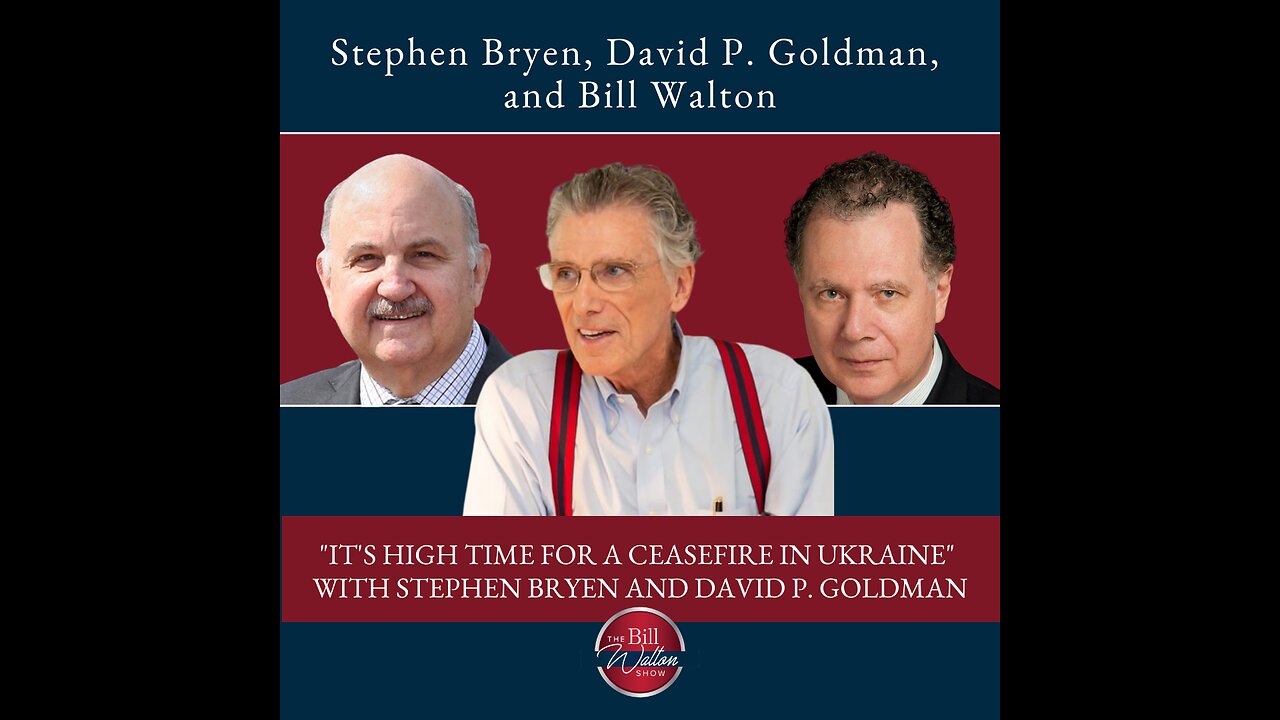
EPISODE 213: “IT’S HIGH TIME FOR A CEASEFIRE IN UKRAINE” WITH STEPHEN BRYEN AND DAVID P. GOLDMAN
As the Russian invasion of Ukraine grinds on, it’s nearly impossible for the ordinary observer to figure out what’s really happening.
One of the problems is that war news is generated primarily by Ukrainian propaganda, which is endlessly parroted in the Western media. Anytime there is contradictory information – for example, mention of Ukraine’s high casualties – Kiev pushes back so hard that Western leaders go silent.
But what is clear is that looming on the horizon is the very real possibility of a nuclear war, as more and more European countries are drawn in to the conflict.
The stakes could not be higher.
To understand what’s happening as the Ukraine situation grows more dire, I’m joined on this episode by my frequent guest Dr. Stephen Bryen, a senior fellow at the Center for Security Policy and by David P. Goldman – Spengler columnist and Deputy Editor for Asia Times and PJ Media.
Stephen has over 50 years national security experience that includes serving as Senior Staff Director of the US Senate Foreign Relations Committee and several stints in the Pentagon where he was known as the Yoda of the arms trade.
David is also the Washington Fellow at the Claremont Institute and has vast subject matter expertise and has written extensively on international affairs and security matters.
This was a disturbing conversation framed in part by US Joint Chiefs of Staff Chairman Mark Milley’s recent statement that “it would be very, very difficult to militarily eject the Russian forces from Ukraine in 2023” and that the casualties on both sides are very high.
“This is something that Ukrainians keep trying to hide, but it’s not a symmetrical conflict. It’s an asymmetrical conflict,” explains Stephen. “The Russian side is much heavier, much bigger, more troops, more capabilities. In a war of attrition, Ukraine loses.”
“A few dozen tanks are not going to really make any difference in the strategic balance,” concurs David.
“Ukrainians have fought very well and very hard, and they’ve been, from a command and control point of view, superior to the Russians overall, but remember that the troops they started with are not the troops they have now.”
Among Ukraine’s urgent call for more weapons is a 100-mile ground-launched long-range bomb known as ATACMS which would shift the war from Ukrainian to Russian territory. Putting this sort of weapon in Ukrainian hands will likely result in a wider war in Europe. And the US decision to ship upgraded nuclear bombs to Europe leads the Russians to conclude that a tactical nuclear war may be NATO’s response if Ukraine collapses.
Washington is facing dangerous choices.
“Should it commit US forces or US air power to Ukraine?” asks Stephen. “If it did so, how quickly would the war spread in Europe? Would NATO, always far more boisterous than can be justified by reality, support sending NATO forces to Ukraine? Or would NATO’s knees finally buckle?”
“Reality is starting to set in a little bit in Europe that the next Russian target is not going to be in Ukraine. It’s going to be in Europe.”
David says it’s time for a gut check: “The United States should step back and ask what our strategic interests are. Do we have an existential or even an important strategic interest in Ukraine?”
“The Biden Administration, personified by Victoria Nuland, believes with religious fervor that Russia is destined to be a liberal democracy and that our goal in one way or another should be regime change, to get rid of Putin.”
But from the Russian’s perspective, explains Stephen, “They lost their entire buffer, which was their award for winning a big part of World War II, when the Soviet Union collapsed. The Russians extracted promises from us that we wouldn’t expand NATO further, and certainly not to Ukraine, and we broke those promises. Absolutely broke those promises.”
So here we are. Ukraine is being reduced to rubble. Russia is not going to be a liberal democracy.
“By making this a war effectively for regime change and threatening the Russians with not just asset seizures, but also war crimes and tribunals, this has caused everyone to rally around Putin,” David warns. “If we wanted to ensure his absolute leadership there, we couldn’t have done it better.”
The Russians firmly believe that the only negotiation is with Washington. It’s time for some grown up diplomacy and for Washington to push for what up until now it has strictly opposed: a peace settlement.
Will Russia be willing to sit down and discuss a deal?
Stephen and David have a surprising candidate from within the Administration who might be able pull it off.
-
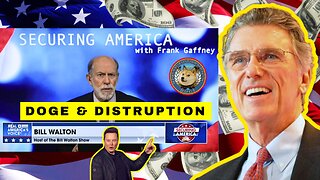 24:25
24:25
The Bill Walton Show
13 days agoBill Walton on REAL AMERICA'S VOICE | DEI, DEFENSE, DOGE, & The Green New Deal with Frank Gaffney
1011 -

Man in America
11 hours agoTrump to BAN the COVID Vaxx?! mRNA in Your Organic Meat?! w/ Kim Bright
12.1K17 -
 DVR
DVR
Flyover Conservatives
1 day agoThe Great Gold Cover-Up: Is Fort Knox EMPTY?! - Clay Clark + Dr. Kirk Elliott | FOC Show
22.2K6 -
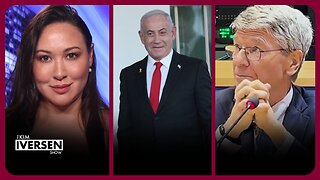 1:24:40
1:24:40
Kim Iversen
9 hours agoJeffrey Sachs Just Exposed the Truth They Don’t Want You to Hear
53.6K39 -
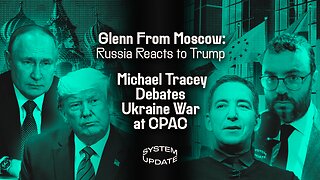 2:11:32
2:11:32
Glenn Greenwald
7 hours agoGlenn From Moscow: Russia Reacts to Trump; Michael Tracey Debates Ukraine War | SYSTEM UPDATE #413
53.2K70 -
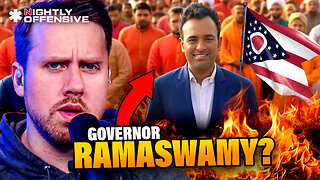
Slightly Offensive
7 hours ago $0.81 earnedGOV. RAMASWAMY? Vivek to import 1 BILLION INDIANS to OHIO | Nightly Offensive
27.5K17 -
 4:51:08
4:51:08
Wahzdee
10 hours agoSniper Elite Then Extraction Games—No Rage Challenge! 🎮🔥 - Tuesday Solos
64.5K3 -
 2:12:58
2:12:58
Robert Gouveia
9 hours agoSenator's Wife EXPOSED! Special Counsel ATTACKS; AP News BLOWN OUT
72.8K41 -
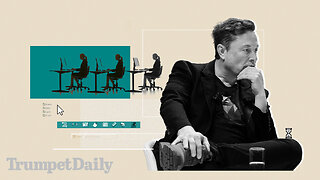 55:07
55:07
LFA TV
1 day agoDefending the Indefensible | TRUMPET DAILY 2.25.25 7PM
47.7K19 -
 6:09:26
6:09:26
Barry Cunningham
16 hours agoTRUMP DAILY BRIEFING - WATCH WHITE HOUSE PRESS CONFERENCE LIVE! EXECUTIVE ORDERS AND MORE!
86K50